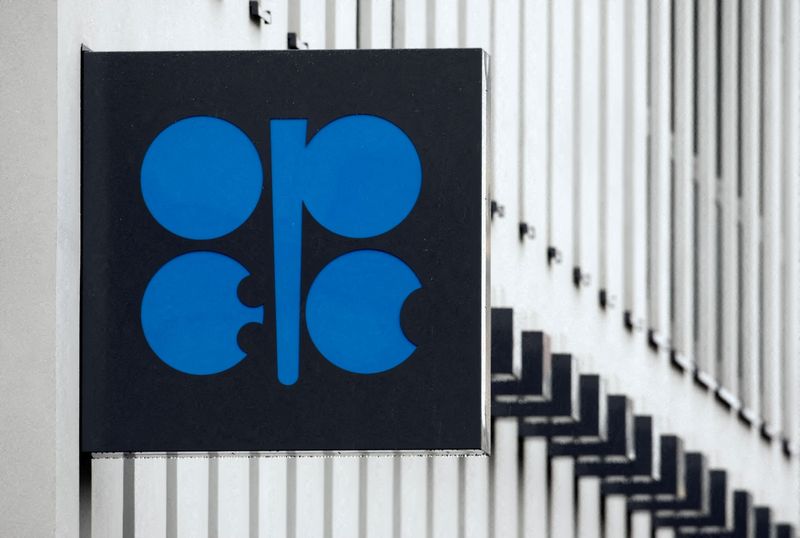By Alex Lawler
LONDON (Reuters) - OPEC told the International Monetary Fund's steering committee on Thursday that the surge in oil prices was largely due to the Ukraine crisis, in the latest signal that the producer group would not take further action to add supply.
In a statement to the International Monetary and Financial Committee (IMFC) seen by Reuters, OPEC said the price of global benchmark Brent crude had averaged near $98 a barrel in the first quarter, up about $18 from the last three months of 2021.
"Oil prices have been on the rise, particularly in March this year ... mainly due to the escalating geopolitical tensions in Eastern Europe and concerns this might result in large oil supply shortages, amid trade dislocations," OPEC told the IMFC.
The IMFC is part of the spring meetings of the International Monetary Fund (IMF) and the World Bank's Board of Governors.
OPEC, which took part in a meeting of the IMFC last year, has been resisting calls by the United States and European Union to pump more oil to cool prices, which reached a 14-year peak above $139 last month after Washington and Brussels imposed sanctions on Moscow over its invasion of Ukraine.
OPEC+, which consists of OPEC and other producers including Russia, will raise output by about 432,000 barrels per day in May, as part of a gradual unwinding of output cuts made during the worst of the COVID-19 pandemic.

OPEC said that OPEC+ had shown its commitment to ensuring that oil supply and demand fundamentals were in balance during the Ukraine crisis to support the global economy.
OPEC also highlighted the negative short-term impact of the Ukraine crisis and ongoing pandemic, adding: "The strong rise in commodity prices, in combination with ongoing supply chain bottlenecks and COVID-19-related logistical constraints are fuelling already high global inflation".